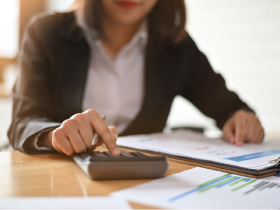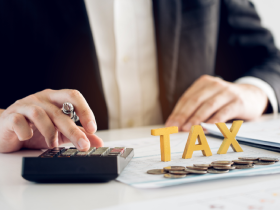According to research by Aviva, 1 in 5 (19%) UK adults have had a side hustle since March 2020, with almost 1 in 6 earning more than £1,000 a month through their venture.
For some it’s a way to supplement other earnings or to learn new skills, but for others it’s also an exciting opportunity to see how existing hobbies perform as a side-hustle before making the big step into a viable business venture.
The options are almost endless, covering a range of industries from photography and copywriting to teaching and consultancy.
Whatever your motivation, keeping on the right side of HMRC is essential, so you’ll need to know how much you can earn, who you need to tell, and what to keep records of.
Paying tax on money you make from a hobby
There are several options when it comes to setting up a business and paying tax, but you might not even need to get that far.
The trading allowance means that you can earn up to £1,000 through self-employment in a tax year, without needing to pay tax – or even needing to tell HMRC about it.
Reach the threshold though, and it’s time to register. The business structure that you go for depends on what works best for your circumstances. One of the simplest options is to register for Self Assessment as a sole trader, although it’s not your only option and plenty of hobby businesses decide to operate as a limited company instead.
How much tax will I pay?
The amount of tax you’ll pay depends on how much earn, whether you have other sources of income, and how you decide to set up the business.
For instance, a sole trader pays income tax on their profits, whether or not they take them out of the business. In a limited company the business will pay Corporation Tax on its profits, and then you’ll pay income tax on any money you take out of the business for yourself.
You can also claim tax relief on the money that you spend for the business, so you’ll pay tax on the profits that you make, not the total amount of income. If you don’t have many costs, you can offset the trading allowance against your income instead!
What if I’m employed too?
If you are in employment (i.e., you have a full-time or part-time job) and get paid through Pay As You Earn (PAYE), you can still make extra money from a hobby, and the trading allowance is still available too. That said, you might want to check whether your employment contract permits it!
You’ll pay tax on your employment earnings throughout the year, and then any self-employment tax you need to pay will be calculated at the end of the year once you submit your Self Assessment tax return.
The Personal Allowance threshold is currently set at £12,570, which means you are exempt from paying Income Tax on the first £12,570 you earn.
Do I need to show PAYE income on my Self Assessment tax return?
Yes, if you are paid through employment but are filing a Self Assessment for additional earnings made from a hobby, you will need to show your PAYE income on your tax return.
This ensures your Self Assessment return includes the details of all your taxable income and gains in one place, so you can pay the appropriate amount of tax.
You’ll need to provide the name and PAYE reference number for each employer you worked for in the tax year, and:
- State your pre-tax employment income
- State how much tax you have already paid on your employment income
- Include any employment expenses
You won’t need to pay tax on this income if you’ve paid already, but HMRC will use this information to make sure you pay tax correctly on your self-employed income. And no, your boss won’t find out unless you tell them, or unless you ask HMRC to collect the money you owe through your tax code.
What happens if I don’t pay enough tax?
If you fail to pay the right amount of tax, then HMRC does have the legal right to investigate your accounts and issue bills for the outstanding tax due.
This might be because you submitted the wrong figures on your tax return, but it could also be a simple mistake on HMRC’s part so don’t immediately assume you’re at fault!
You can receive a penalty for being late though, both for submitting your tax return and for paying the bill. HMRC will issue a financial penalty and often add late payment fees or interest on top of what you owe. Late payment penalties are currently set at the following rates:
- 5% of the tax owed – after the payment is 30 days overdue.
- An additional 5% of the tax owed – after the payment is 6 months overdue.
- A further 5% of the tax owed – after the payment is 12 months overdue.
Failure to notice penalties
If you’ve been being paid through PAYE and have recently started earning through a side hustle or hobby, this means your tax status has changed – and therefore how much tax you owe.
It’s your responsibility to inform HMRC of this so that you can start paying the appropriate deductions and submitting the right type of tax return.
If you don’t let HMRC know about your additional income stream, this warrants a ‘failure to notice’ penalty.
Failure to notice fines ranges from £100 to £3,000 and are influenced by whether or not your disclosure of a tax status change was prompted or unprompted. Don’t try to hide from HMRC!
Find more resources and advice for your business on our website, or check out our guide to hiring the right accountant for you.







2 Comments